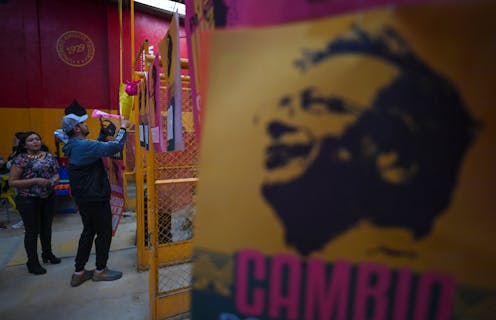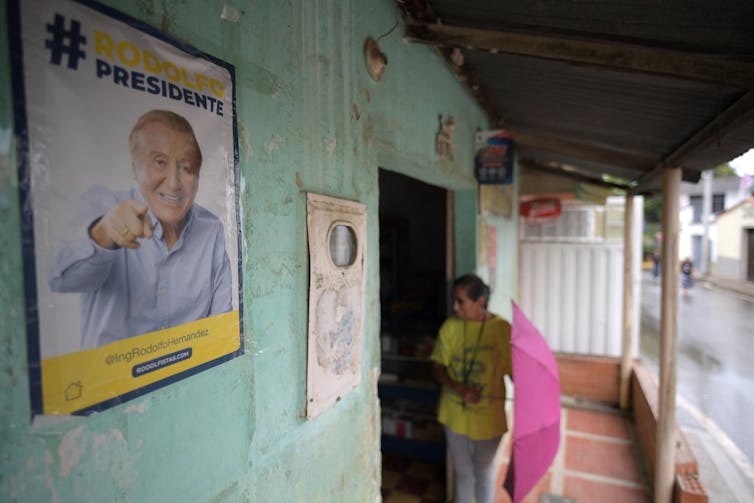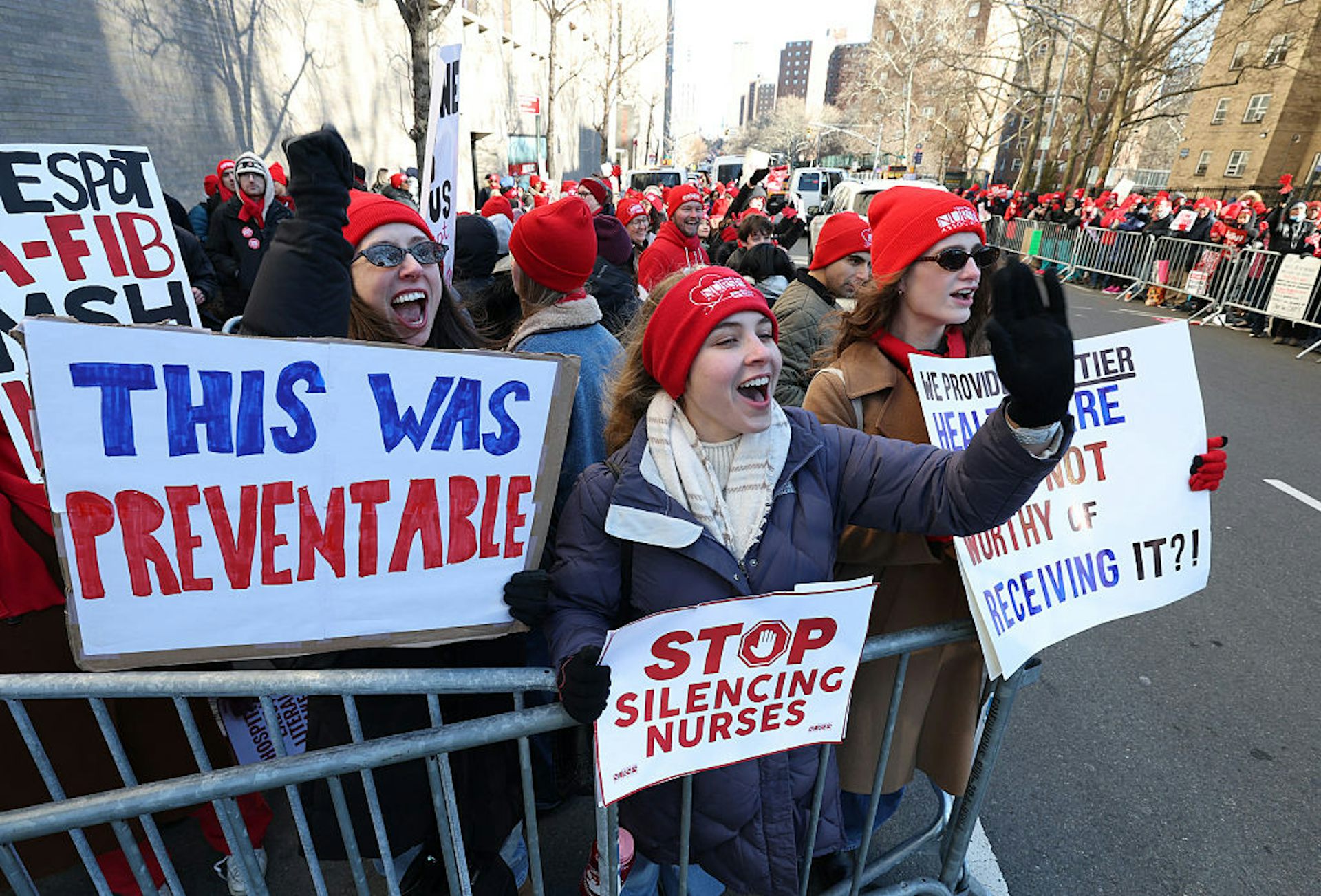What's at stake as Colombians choose between Trump-like populist and leftist former guerrilla for pr
Colombians go to the polls on June 19 to elect a new president. The vote comes at a delicate time in the country’s politics.

Colombians will decide their next president on June 19, 2022, with a choice between two candidates promising “change.” But what they mean by change is very, very different.
The two runoff contenders – one a left-wing senator and former guerrilla, the other a right-wing populist in the mold of Donald Trump – hold views on the country’s past, present and future that are poles apart. Whoever wins will replace Ivan Duque, an establishment conservative who has served as president since 2018.
As a scholar of Latin American politics, I see this election as a pivotal moment for Colombia. The outcome could determine whether the country deepens its commitment to democracy or alternatively cultivates authoritarian tendencies in society and politics. And it comes at a sensitive time. Whoever wins the presidency will inherit a host of challenges, from shoring up the fragile peace deal that in 2016 committed to end a decadeslong conflict, to combating rampant inequality, widespread violence and the region’s migration crisis.
From Historic Pact to historic victory?
The runoff follows a first-round vote on May 29 that narrowed the presidential choice to two from a field of six. The race is now between Gustavo Petro, who heads the Historic Pact – a left-center coalition – and Rodolfo Hernandez, a controversial businessman and former mayor, running for the League of Anti-corrupt Governors Party.

Latest polls indicate that the race is too tight to call despite a healthy lead for the Historic Pact candidate in the first round of voting.
Indeed, Petro – who is running on a ticket with Black grassroots activist and lawyer Francia Marquez as his vice presidential pick – garnered 8.5 million votes on May 29, some 40.3% of the total.
However, Hernandez – who got close to 6 million votes – is likely to benefit by being the favorite to pick up the majority of the 5 million votes that went to the third-placed candidate in the May 29 ballot, right-wing candidate Federico Gutierrez.
The rise of the ‘TikTok King’
The last few weeks of the campaign have shown a more complex and fluid political scenario, making predicting a winner difficult.
Hernandez climbed ahead of Petro in polls conducted the week after May 29. But several factors may yet hamper Hernandez.
The 77-year-old Hernandez presents himself as an outsider fighting corruption and running against the political establishment. But this has been undermined by the fact that he faces an upcoming trial for corruption himself. He denies the 200 charges of corruption, but some legal analysts contend there is a strong case against him. Hernandez has also been strongly endorsed by Colombia’s right-wing political elite.
Meanwhile, his reluctance to debate the issues – he agreed to a public sparring with Petro only after being ordered to by court – combined with assertions that he wishes to dismiss the legislative branch and will declare a state of emergency as soon as he is elected – puts his authoritarian edge on full display to the electorate. He has also been criticized for voting against the peace agreement in the 2016 national plebiscite.
Hernandez has been compared with other right-wing populists who have found success in recent years, such as Donald Trump and Brazilian President Jair Bolsonaro. Just like Trump, Hernandez is portrayed by his supporters as a successful entrepreneur who can put those skills to use as a good political administrator. And in line with Bolsonaro, he has been openly sexist and xenophobic.
Even his reputation as the “King of TikTok” can be seen as ripped from the playbooks of other populists, including Trump, with an emphasis on simple messages.
Still, Hernandez’s right-wing message evidently appeals to many Colombians and has been helped along by establishment conservatives eliminated in the first round of voting throwing their support – and potentially their voters – his way.
His self-presentation as an outsider fighting the political establishment also appeals to many voters who are tired of a political system that had not solved the violence, poverty and corruption that permeates in the country.
By contrast, many analysts from the mainstream media in Colombia have suggested that Petro’s campaign may have peaked in the first round and will find it difficult to grow much in the runoff.
Leaders of the Hope Center Coalition publicly backed Petro after their candidate came fourth on May 29. But the 900,000 votes the centrist candidate garnered pale in comparison with the 5 million votes that went to third-place establishment conservative candidate Federico Gutiérrez – who has since endorsed Hernandez.
Turnout may be key – just over 50% of the electorate participated in the May 29 contest. Political analysts suggest that a larger turnout – especially a big youth showing – would benefit Petro.
Third time lucky for Petro?
For Petro, this is his third run for president. In 2018 he finished second, with 8 million votes.
He’s outperforming his previous runs, in large part because of the Historic Pact. Formed in February 2021, it’s the largest coalition of social movements and political organizations in Colombian history and has been injecting momentum into his campaign. Petro has been aided, too, by the rising national profile of his running mate, Francia Marquez.
Francia came second to Petro in a primary race to pick the Historic Pact’s candidate, running as the head of a broad-based movement that represents groups that have long been excluded from political power in Colombia. Francia – who is poised to become South America’s first Black female vice president – advocates policies geared at empowering Black, poor and Indigenous Colombians. She also has strong support among students, other young Colombians and members of the country’s LGBTQ community.
Both Francia and Petro are viewed as challenges to status quo politics in Colombia.
Political opponents of Petro contend that his presidency could transform Colombia into “another Venezuela” characterized, as they see it, by a dictatorial regime that pushed the country into a humanitarian and economic crisis.
Yet Petro has repeatedly insisted that he is a progressive looking for change through democratic means. His platform combines agrarian reform, progressive taxation, ecological clean energy, sustainable economic development and state investment in public education and health care.
Toward democracy or authoritarianism?
The first round vote in the Colombia presidential election was generally seen as a vote by the people against the status quo. Indeed, such sentiment had already been expressed by means of 2021’s national strike – the largest in the country’s history.
In many respects, Colombia is an extremely fragile liberal democracy – scarred by rampant inequality and finding it hard to transition from a long-running conflict among government forces, paramilitary groups and leftists rebels.
As such, much is at stake in the June 19 runoff vote – it could decide whether Colombia deepens its commitment to democracy, peace and justice, or instead moves toward accommodating authoritarian tendencies.
Agustin Lao-Montes does not work for, consult, own shares in or receive funding from any company or organisation that would benefit from this article, and has disclosed no relevant affiliations beyond their academic appointment.
Read These Next
AI’s growing appetite for power is putting Pennsylvania’s aging electricity grid to the test
As AI data centers are added to Pennsylvania’s existing infrastructure, they bring the promise of…
Why US third parties perform best in the Northeast
Many Americans are unhappy with the two major parties but seldom support alternatives. New England is…
From moral authority to risk management: How university presidents stopped speaking their minds
Nearly 150 universities and colleges have adopted institutional neutrality pledges since 2023.






